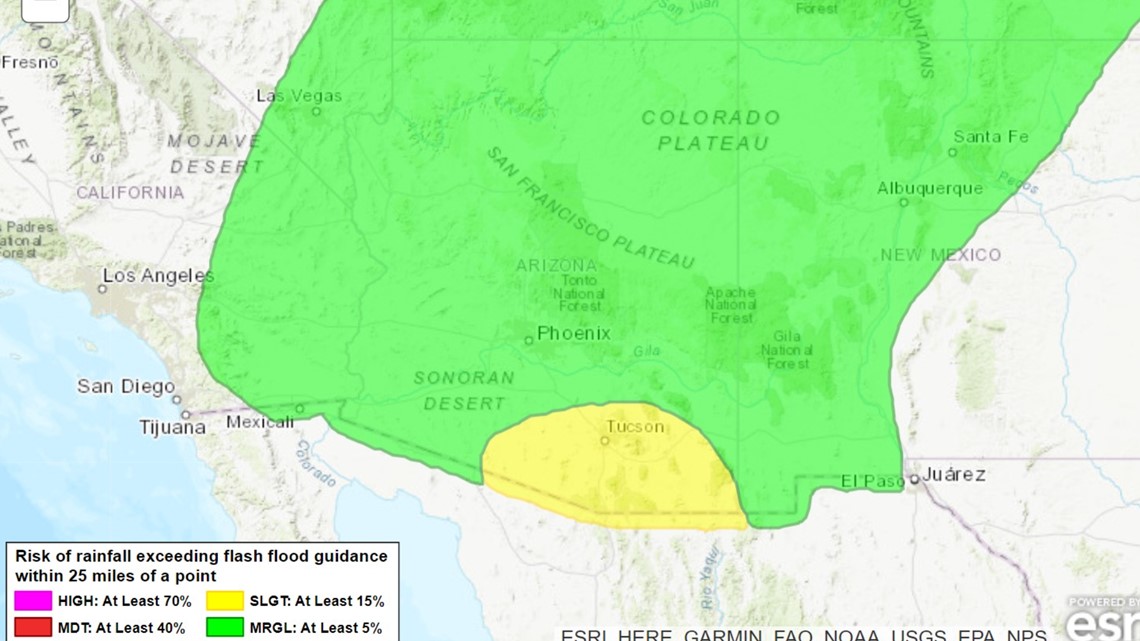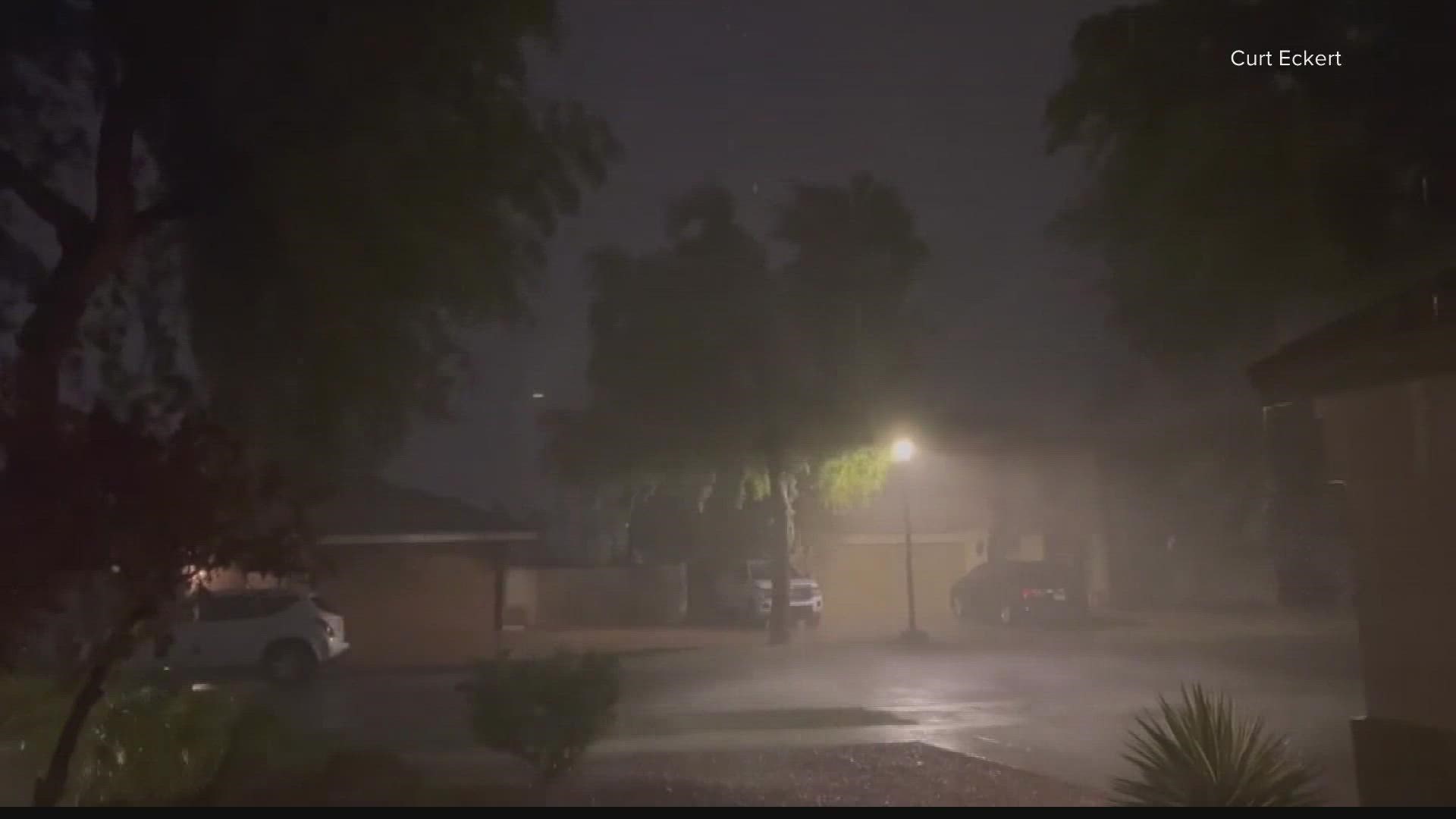ARIZONA, USA — Editor's note: The above video aired during a previous broadcast.
Arizona's desert, usually arid, climate will be ground zero for flash flooding risk as a high-pressure system moves up from the Gulf of Mexico.
The monsoon pattern is going to be getting into perfect alignment with high pressure sliding over to the Four Corners region of Arizona, Utah, Colorado and New Mexico pulling up tons of moisture from the south.
When the heavy rainfall risk is up, so is the threat for flash flooding. It takes time for rainfall to soak into the ground, so if it comes in a quick heavy burst from a thunderstorm, it triggers flash flooding.


Flooding Safety:
The Arizona Fire & Medical Authority has provided the following tips on what hazards to watch out for during and after a flood, including fire, electrical and chemical safety.
Generators and alternative heating devices can create fire hazards during flooding if they aren’t used correctly or maintained properly. Pools of water and appliances can become electrically charged and can cause electrical fires.
On electricity, residents in flooded areas should turn off the power to their homes if they can reach the main breaker or fuse box. All wiring in the house may be electrically charged and hazardous. Residents should have a professional technician check their home for damages before turning on the power.
Make sure potentially combustible liquids like paint thinner, lighter fluid or gasoline haven’t spilled within or near your home. Keep combustible liquids away from electrical or alternative heat sources as to not start a fire.
All smoke alarms in the home should be tested monthly and batteries should be replaced yearly. Some smoke alarms are dependent on your home’s electrical service and may go out when power is turned off.
Make sure the fire hydrant near your home is cleared of debris so the fire department can assess it easily in the event of a fire.
Arizona weather
Drought, wildfires, heat and monsoon storms: Arizona has seen its fair share of severe weather. Learn everything you need to know about the Grand Canyon State's ever-changing forecasts here.

